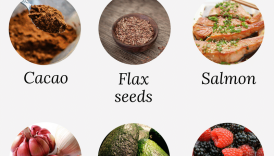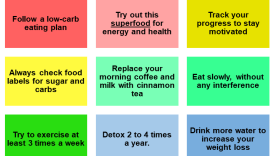Transform Your Health Journey with Living Good Vitamins: A Comprehensive Review

Understanding the Importance of Vitamins
Vitamins are essential compounds that play crucial roles in our overall health and well-being. Often overlooked, they are fundamental building blocks our bodies need to function effectively. Each vitamin is unique, contributing to different bodily functions, from red blood cell formation to bone health. It’s fascinating to think about how a simple vitamin deficiency can lead to significant issues like fatigue or weakened immunity. For instance, when someone doesn’t get enough Vitamin D, it can result in weakened bones and increased susceptibility to illness. Recognizing the importance of vitamins encourages individuals to pay closer attention to their diet and lifestyle choices.
- Transform Your Health Journey with Living Good Vitamins: A Comprehensive Review
- Understanding the Importance of Vitamins
- Benefits of Incorporating Vitamins into Your Health Journey
- Types of Vitamins
- Essential Vitamins for Overall Wellness
- Specialty Vitamins for Targeted Health Needs
- Choosing the Right Vitamin Supplement
- Factors to Consider When Selecting Vitamins
- Common Mistakes to Avoid When Choosing Supplements
- Impact of Vitamins on Different Body Systems
- How Vitamins Support Immune System Health
- Vitamins for Enhancing Cognitive Function
- The Role of Vitamins in Fitness and Exercise
- Benefits of Vitamins for Physical Performance
- Vitamins to Support Muscle Recovery after Workouts
- Understanding Vitamin Absorption and Dosage
- Factors Affecting Vitamin Absorption in the Body
- Recommended Dosages for Different Vitamins
- Incorporating Vitamins into Your Daily Routine
- Tips for Consistent Vitamin Intake
- Creative Ways to Include Vitamins in Meals and Snacks
Benefits of Incorporating Vitamins into Your Health Journey
Incorporating vitamins into your health journey can transform the way you feel and enhance your quality of life. Here are some compelling benefits:
- Boosted Immunity: Essential vitamins strengthen the immune system, helping to fend off illness.
- Improved Mood and Energy Levels: Certain vitamins, like B12, are known to support mental clarity and energy, making daily tasks easier.
- Enhanced Skin and Hair Health: Vitamins A, C, and E can improve skin complexion and promote healthier hair.
Adopting a vitamin-rich diet not only nurtures the body but can also positively impact mental health, creating an overall sense of wellness. Making small yet meaningful changes today can pave the way for a healthier tomorrow.
Types of Vitamins
Essential Vitamins for Overall Wellness
When discussing vitamins, it’s essential to recognize the core group often referred to as essential vitamins. These are the powerhouses that our bodies cannot produce on their own, meaning we must obtain them from our diet. Each plays a pivotal role in maintaining overall wellness:
- Vitamin A: Vital for vision, skin health, and immune function. Foods like carrots and sweet potatoes are excellent sources.
- B Vitamins: This group is crucial for energy production and brain health. Whole grains, leafy greens, and legumes pack a punch here.
- Vitamin C: Known for its antioxidant properties, it supports the immune system and enhances skin health. Think citrus fruits and bell peppers.
- Vitamin D: Often called the “sunshine vitamin,” it helps regulate calcium and supports bone health. Getting sun exposure or taking fortified foods can help boost levels.
Specialty Vitamins for Targeted Health Needs
While essential vitamins provide a solid foundation for health, specialty vitamins address specific health concerns. For example, individuals with certain health issues may benefit from targeted supplementation:
- Omega-3 Fatty Acids: Excellent for heart health, often found in fish oil supplements.
- Biotin: Popular for promoting hair and nail growth, it’s often included in beauty-focused supplements.
- Vitamin E: This vitamin offers antioxidant support and may help with skin issues.
Using specialty vitamins can enhance targeted health goals, ensuring everyone finds a tailored approach to their wellness journey. Balancing both essential and specialty vitamins can lead to comprehensive health benefits.
Choosing the Right Vitamin Supplement
Factors to Consider When Selecting Vitamins
Choosing the right vitamin supplement can feel overwhelming, especially with countless options available on the market. However, by considering a few key factors, individuals can make informed choices that support their specific health needs:
- Dietary Needs: Reflect on your current diet. Are there any gaps in your nutritional intake? For example, if you’re a vegetarian, you might need to supplement with Vitamin B12.
- Health Goals: Are you looking to boost your immune system, improve skin health, or enhance overall energy? Identifying your goals can help narrow down vitamin choices.
- Quality and Purity: Look for reputable brands that undergo third-party testing to ensure product safety and potency. Checking for certifications can also guide your selection.
Common Mistakes to Avoid When Choosing Supplements
Despite knowing what to look for, many people still make common mistakes when selecting vitamin supplements. Acknowledging these pitfalls can save time and money:
- Assuming More is Better: Some assume that taking high doses will yield faster results. This can lead to toxicity. For instance, fat-soluble vitamins like A, D, E, and K can accumulate in the body to harmful levels.
- Neglecting Timing: Some vitamins are better absorbed at specific times. For example, taking fat-soluble vitamins with a meal can enhance absorption.
- Ignoring Interactions: Certain vitamins and minerals can interact with medications, so consulting a healthcare provider is essential.
By being aware of these factors and mistakes, individuals can make smarter choices that align with their health journeys, ensuring they reap the full benefits of vitamin supplementation.
Impact of Vitamins on Different Body Systems
How Vitamins Support Immune System Health
Vitamins play a pivotal role in supporting our immune system, helping to fend off illnesses and infections. A strong immune system is our body’s first line of defense, and incorporating the right vitamins can enhance this protective mechanism.
- Vitamin C: This vitamin is a well-known immune booster and helps stimulate the production of white blood cells, which are crucial for fighting infections. Foods rich in Vitamin C include oranges, strawberries, and broccoli.
- Vitamin D: Often referred to as the “sunshine vitamin,” Vitamin D helps modulate the immune response. Low levels of Vitamin D have been linked to an increased risk of respiratory infections.
- Vitamin E: This powerful antioxidant can help combat oxidative stress in the body, which can weaken immune function. Nuts and seeds are excellent sources of Vitamin E.
When individuals maintain a diet rich in these vitamins, their immune systems are better equipped to handle pathogens, reducing the chances of falling ill.
Vitamins for Enhancing Cognitive Function
In addition to immune support, certain vitamins significantly influence cognitive function, enhancing memory and mental clarity. For instance:
- B Vitamins: Vitamins like B6, B12, and folate are essential for brain health. They assist in neurotransmitter production, which is vital for mood and cognitive abilities.
- Vitamin E: Also known to reduce oxidative stress in the brain, Vitamin E has been linked to improved cognitive function in aging adults.
- Omega-3 Fatty Acids: While often categorized under essential fatty acids, they are incredibly beneficial for brain health, helping to support memory and overall cognitive performance.
By recognizing the impact these vitamins have on immune and cognitive health, individuals can make informed choices that enhance both their physical and mental well-being. Prioritizing these nutrients can lead to a healthier, more vibrant life.
The Role of Vitamins in Fitness and Exercise
Benefits of Vitamins for Physical Performance
When it comes to fitness and exercise, vitamins are not just supplementary; they are instrumental in enhancing physical performance. The right vitamins can help athletes and fitness enthusiasts achieve their best results.
- B Vitamins: This group is essential for energy metabolism. They help convert food into energy, keeping you fueled during workouts. Think of whole grains and leafy greens as power sources for your body.
- Vitamin D: Research suggests that Vitamin D can improve muscle strength and function. A deficiency might leave you feeling tired, which can hinder workout performance.
- Antioxidants (Vitamins A, C, and E): These vitamins help combat oxidative stress caused by intense physical activity. This can lead to enhanced endurance and quicker recovery during workouts.
Just ask anyone who has increased their intake of these vital nutrients—they often notice a boost in stamina and overall performance.
Vitamins to Support Muscle Recovery after Workouts
Post-workout recovery is equally important, and vitamins play a crucial role here as well. After an intense session, your body needs to heal and rebuild:
- Vitamin C: Essential for collagen synthesis, which aids in tissue repair. Fresh fruits like kiwi and strawberries can help replenish your Vitamin C levels after exercising.
- Vitamin E: Known for its anti-inflammatory properties, it helps reduce muscle soreness and supports recovery.
- Vitamin D: Beyond its role in performance, Vitamin D assists in muscle recovery and reduces muscle degeneration.
Integrating these vitamins into your post-workout routine can significantly speed up recovery, allowing for more effective training sessions. Whether by incorporating these into your diet or considering supplements, nourishing your body with the right vitamins is vital for maintaining an active lifestyle.
Understanding Vitamin Absorption and Dosage
Factors Affecting Vitamin Absorption in the Body
Vitamin absorption is a critical aspect of ensuring that the body receives the full benefits of these essential nutrients. Interestingly, several factors can influence how well vitamins are absorbed:
- Dietary Fat: Some vitamins, particularly the fat-soluble ones (A, D, E, K), require fat for optimal absorption. Pairing a salad with a drizzle of olive oil can significantly enhance the absorption of Vitamin A from carrots.
- Gut Health: A healthy digestive system is vital. Conditions such as celiac disease or irritable bowel syndrome can hinder vitamin absorption, leading to deficiencies even if dietary intake is adequate.
- Age: As we age, our bodies may become less efficient at absorption. Older adults might require higher doses of certain vitamins like B12, which can be harder to absorb due to decreased stomach acid production.
It’s important to consider these factors when aiming to optimize vitamin intake.
Recommended Dosages for Different Vitamins
Understanding recommended dosages helps prevent both deficiencies and toxicity. While individual needs can vary, here are some general guidelines:
- Vitamin C: About 65-90 mg per day. This can typically be met by eating a variety of fruits and vegetables.
- Vitamin D: 600-800 IU daily, depending on age, with higher doses often recommended for individuals with low levels.
- Vitamin B12: For adults, around 2.4 mcg is recommended, especially for those on vegetarian or vegan diets, as B12 is primarily found in animal products.
Individual needs may differ, so it’s a good idea to consult a healthcare professional to determine the best dosages tailored to personal health goals. By balancing understanding and dosage of vitamins, individuals can actively support their health journey while maximizing absorption and efficacy.
Incorporating Vitamins into Your Daily Routine
Tips for Consistent Vitamin Intake
Making vitamins a consistent part of your daily routine can sometimes feel like a challenge, but with a few nifty strategies, it can become second nature. Here are some effective tips to ensure you’re getting the vitamins you need:
- Set a Schedule: Just like taking your morning coffee or brushing your teeth, establish a routine around your vitamin intake. Consistency is key; set a daily reminder to help you stay on track.
- Combine with Daily Habits: Pair your vitamin intake with meals. For example, take your vitamins during breakfast or lunch. This will help you remember and also give your body the necessary nutrients it needs with food for better absorption.
- Use Pill Organizers: If you’re taking multiple supplements, consider using a pill organizer. It keeps everything neat and ensures you don’t miss a dose.
Creative Ways to Include Vitamins in Meals and Snacks
Eating a variety of foods is a delightful way to ensure you’re getting enough vitamins. Here are some creative meal ideas:
- Smoothie Bowls: Blend spinach (Vitamin K) and bananas with a scoop of protein powder, and top it off with berries (Vitamin C) and nuts (Vitamin E).
- Veggie-packed Omelets: Add bell peppers, tomatoes, and mushrooms to your morning eggs for a boost of vitamins A, C, and D.
- Snazzy Snacks: Consider hummus dip with carrot and cucumber sticks for a healthy, vitamin-rich snack.
Incorporating these strategies can transform your vitamin intake from a mundane task into an enjoyable and effortless part of your day-to-day life. With creativity and a little planning, getting your daily dose of vitamins can become an easy and delicious habit!





